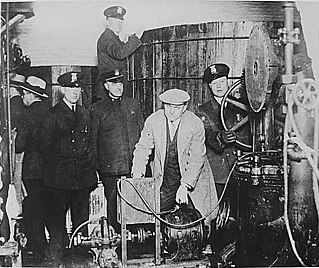A drug law may refer to:

A victimless crime is an illegal act that typically either directly involves only the perpetrator or occurs between consenting adults. Because it is consensual in nature, whether there involves a victim is a matter of debate. Definitions of victimless crimes vary in different parts of the world and different law systems, but usually include possession of any illegal contraband, recreational drug use, prostitution and prohibited sexual behavior between consenting adults, assisted suicide, and smuggling among other similar infractions.

The prohibition of drugs through sumptuary legislation or religious law is a common means of attempting to prevent the recreational use of certain intoxicating substances.
Drug use may refer to any drug use; or:
DOI or Doi may refer to:
This article is intended to give an overview of several arguments for and against drug prohibition.
Drug policy reform, also known as drug law reform, generally refers to proposed changes to the laws and regulations that governments promulgate with respect to substances that have psychoactive effects or a real or perceived potential to be used for recreational or other non-medical reasons. Proponents of drug policy reform frequently argue that prohibition of recreational drugs—such as cannabis, opioids, cocaine, amphetamines and hallucinogens—has been ineffective and counterproductive and that substance use is better responded to by implementing practices for harm reduction and increasing the availability of addiction treatment. Another reform proposed is to introduce a regulatory regime for the production, marketing, and distribution of some or all currently illegal drugs in a manner analogous to that for alcohol and tobacco.
Prohibitionism is a legal philosophy and political theory often used in lobbying which holds that citizens will abstain from actions if the actions are typed as unlawful and the prohibitions are enforced by law enforcement. This philosophy has been the basis for many acts of statutory law throughout history, most notably when a large group of a given population disapproves of and/or feels threatened by an activity in which a smaller group of that population engages, and seeks to render that activity legally prohibited.
Drug war(s) may refer to:
Prohibition refers to the act of prohibiting a certain substance or act.

In the United States, the non-medical use of cannabis is legalized in 18 states and decriminalized in 13 states as of June 2021. Decriminalization refers to a policy of reduced penalties for cannabis offenses, typically involving a civil penalty for possessing small amounts, instead of criminal prosecution or the threat of arrest. In jurisdictions without penalty the policy is referred to as legalization, although the term decriminalization is sometimes used for this purpose as well.
Administration may refer to:
Schedule 7 may refer to:
A drug policy is the policy regarding the control and regulation of psychoactive substances, particularly those that are addictive or cause physical and mental dependence. While drug policies are generally implemented by governments, entities at all levels may have specific policies related to drugs.

Drug liberalization is a drug policy process of decriminalizing or legalizing the use or sale of controlled drugs. Variations of drug liberalization include: drug legalization, drug re-legalization and drug decriminalization. Proponents of drug liberalization argue that the legalization of these would make them more widely available, eradicating the drug market and reducing the law enforcement costs and incarceration rates.
Kil'ayim may refer to:
Substance control may refer to:

Prohibition in the United States was a nationwide constitutional ban on the production, importation, transportation, and sale of alcoholic beverages from 1920 to 1933.

Alcohol prohibition in India is in force in the states of Bihar, Gujarat, Mizoram, and Nagaland. All other Indian states and union territories permit the sale of alcohol.

Drug Law Reform Australia is a deregistered political party in Australia. The aims of the party are to create a new regulatory system for illegal drugs in Australia, and influence the political debate around drug use towards decriminalisation and harm minimisation. The party is the outshoot of community groups lobbying elected politicians about the social effects of criminal drug prohibition, such as the community group Family and Friends of Drug Law Reform.

Terms related to cannabis include: